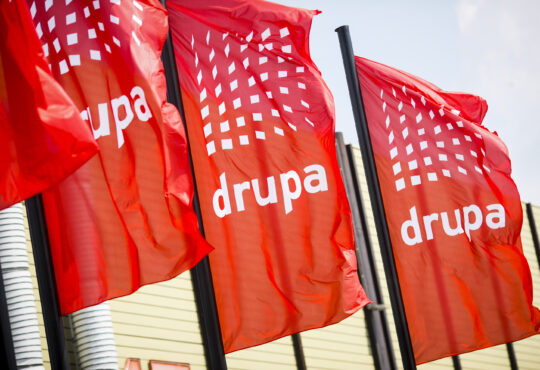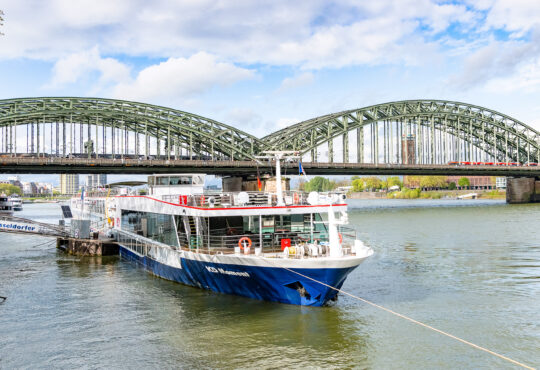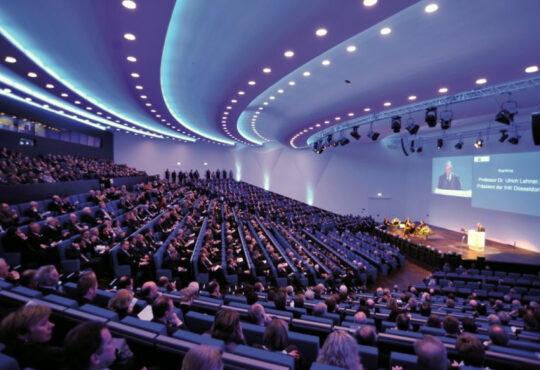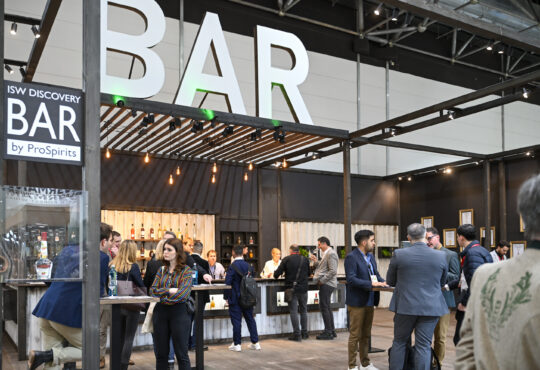EuroShop and the City of Düsseldorf: how city centres of the future will work
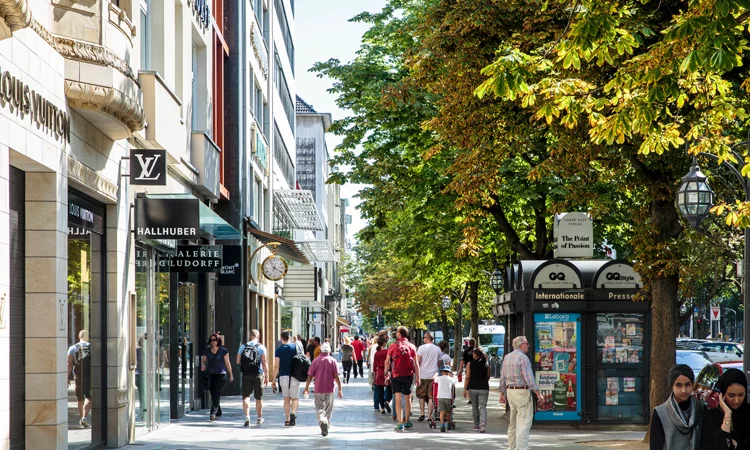
In the future, city centres will have to offer more than just shopping experiences. What exactly is meant by this can be marvelled at during the international retail trade fair EuroShop – and in Düsseldorf’s city centre. Here we test out what the successful interaction of food service, culture, shopping and sustainability might look like. And Messe Düsseldorf plays a key role in this.
Düsseldorf looks back on a long tradition as a shopping metropolis. As early as 1915 some one hundred retail stores along the “Königsallee” were already vying for the favour of demanding shoppers. In the mid-1950s the trams running along the elegant shopping mile were removed to make it easier for visitors to stroll. In around 20 years the famous Altstadt (Old Town) was transformed into a pedestrian zone; the Rhine embankment was built in the 1990s, making visits to the city centre even more attractive. Düsseldorf’s versatility pays off: every year, hundreds of thousands of visitors come the state capital of North Rhine-Westphalia. Even during the Covid year 2021 the city posted around 1.9 million overnight stays by German and international tourists. Figures that show just how well the Düsseldorf city centre has coped with the challenges of the past few years – like booming e-commerce, Covid and the energy crisis. It continues to be the place where people meet; this is the beating heart of the city.
City centres – Places of excitement
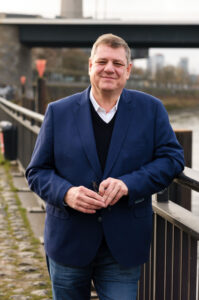
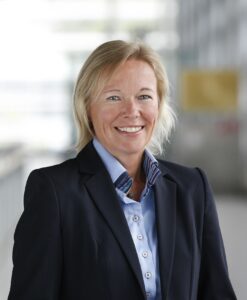
Creating synergies
In Düsseldorf’s city centre Frank Hermsen reacts to the numerous factors of attractiveness for city centres with intense networking. He brings together stakeholders from urban planning, culture, retail and food services. Together, they develop ideas and projects that benefit all parties involved. “Visiting our city centre is to become an event in its own right,” Frank Hermsen says outlining his vision. “Ideally, people come to the city to shop, then visit a museum or an event and later wind down from the day at a bar or in a restaurant.” Those wanting to relax or work will find green oases and modern working spaces anywhere in the public space. Düsseldorf has come a long way to reach this goal, says Hermsen, not least because of its good infrastructure. “We do justice to the village element in our name (‘-dorf’ = village), in the positive sense of the word. We are lucky enough to be a major city where you can still quickly get from one highlight to the next, thanks to the short distances.”
Success factor climate protection
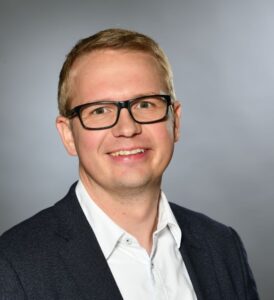
Exhibition Centre as a focal point
Like Frank Hermsen, Sven Schulte and the CIC also regard the networking of important stakeholders as a key success factor for tomorrow’s city centres. Messe Düsseldorf plays a pivotal role here as a visitor magnet. In its position paper “Perspektiven für die Düsseldorfer Innenstadt 2030” (Perspectives for Düsseldorf City Centre 2030) the CIC recommends, amongst other things, offering more events and activities in the centre that tie in with the trade fair programme. This could be pop-up stores in vacant retail premises, special shows on the “Kö” or matching themed gastronomic events.
City Manager Frank Hermsen is excited about such ideas. “A city only becomes liveable if it remains in a constant state of flux. This not only positively impacts its citizens but also the numerous visitors from throughout the world who come to our city as part of the trade fairs. This makes their visit to the city centre even more exciting because they can discover something new each time.”
How Düsseldorf city centre can remain l(i/o)vable
- 1. Events with international appeal: from regular street festivals to multi-day cultural events such as Japan Day or nonrecurring highlights like the Eurovision Song Contest or the Tour de France – Düsseldorf offers a lot. In the future, events like these will be staged even more often and regularly in the state capital.
- 2. Places to linger with internet access: relax or work – both will be possible in the public zones the city wants to create. These will feature comfortable seating and free, powerful Wi-Fi access covering the entire city centre.
- 3. Safety first: the city centre is to become even safer. Which is why the municipal authorities plan to invest some half a million Euros in improved lighting and deploy more security staff in the city.
- 4. Sustainability please: When erecting new buildings plenty of greenery and solar power will become the standard. The spectacular skyscraper “Twist” will even be equipped with a landing place on the roof for electrical air taxis. Last but not least, Düsseldorf’s streets are to be painted in light colours in the future. This will slow down the warming of the city centre due to solar radiation.
The future of city centres as retail locations is one of the Hot Topics at EuroShop 2023. The leading international trade fair for retail offers innovative and sustainable solutions for the retail industry.
Vibrant City Centres
https://www.euroshop.de/de/Besuchen/Messevorbereitung/Vitale_Innenstädte
Future Urban Lab
https://www.euroshop.de/de/Programm/Sonderflächen/Future_Urban_Lab
Think Sustainably – Act Responsibly
https://www.euroshop.de/de/Programm/Sonderflächen/THINK_SUSTAINABLY_–_ACT_RESPONSIBLY




